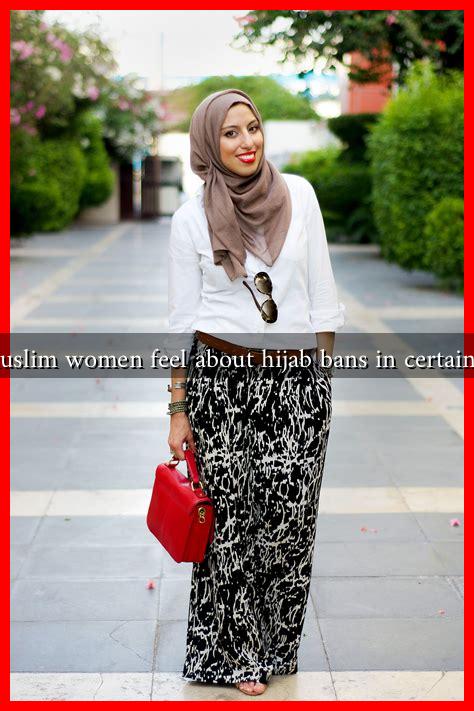-
Table of Contents
How Do Muslim Women Feel About Hijab Bans in Certain Countries?
The hijab, a traditional headscarf worn by many Muslim women, has become a focal point of debate in various countries, particularly in the West. While some view it as a symbol of oppression, others see it as an expression of faith and identity. This article explores the sentiments of Muslim women regarding hijab bans in certain countries, examining the implications of such policies on their lives and identities.
The Context of Hijab Bans
In recent years, several countries have implemented bans on the hijab in public spaces, citing reasons such as secularism, national security, and women’s rights. Notable examples include:
- France: The country has enforced a ban on wearing conspicuous religious symbols, including the hijab, in public schools since 2004.
- Belgium: In 2011, Belgium became one of the first European countries to ban the full-face veil, which includes the niqab and burqa.
- Denmark: In 2018, Denmark passed a law prohibiting the wearing of face-covering garments in public spaces.
These bans have sparked significant controversy and have led to a range of reactions from Muslim women, who are directly affected by these policies.
Voices of Muslim Women
Muslim women’s perspectives on hijab bans are diverse and often nuanced. Many express feelings of frustration and alienation, while others may support the bans for various reasons. Here are some common sentiments:
- Oppression and Discrimination: Many Muslim women view hijab bans as a form of oppression. They argue that such laws infringe on their personal freedoms and religious rights. For instance, a study conducted by the Pew Research Center found that 62% of Muslim women in France felt that the hijab ban was discriminatory.
- Identity and Empowerment: For some women, wearing the hijab is a source of empowerment and identity. They argue that the choice to wear the hijab should be respected, regardless of societal norms. A survey by the Islamic Society of North America revealed that 75% of Muslim women who wear the hijab feel it is an important part of their identity.
- Support for Secularism: Interestingly, some Muslim women support hijab bans, believing that they promote secularism and gender equality. They argue that the hijab can be a symbol of patriarchal control and that banning it can help liberate women from societal pressures.
Case Studies: Personal Experiences
To better understand the impact of hijab bans, it is essential to look at personal stories. For example:
- Fatima, a French Muslim woman: Fatima describes her experience of being forced to remove her hijab in school as humiliating. She states, “It felt like my identity was being stripped away. I am proud of my faith, and the hijab is a part of that.” Her story reflects the sentiments of many who feel marginalized by such laws.
- Amina, a Belgian activist: Amina supports the hijab ban, arguing that it helps women break free from traditional expectations. “I believe that women should have the choice to wear or not wear the hijab without societal pressure,” she explains. Her perspective highlights the complexity of opinions within the Muslim community.
The Broader Implications
Hijab bans do not only affect individual women; they also have broader societal implications. These include:
- Increased Islamophobia: Such bans can contribute to a climate of fear and misunderstanding about Islam, leading to increased discrimination against Muslim communities.
- Polarization: The debate around hijab bans often polarizes communities, creating divisions between those who support secularism and those advocating for religious freedoms.
- Impact on Mental Health: Many Muslim women report feelings of anxiety and depression due to societal pressures and discrimination stemming from hijab bans.
Conclusion
The feelings of Muslim women regarding hijab bans are complex and multifaceted. While some view these bans as oppressive and discriminatory, others may see them as a step towards liberation from patriarchal norms. It is crucial to recognize the diversity of opinions within the Muslim community and to engage in respectful dialogue about these issues. Ultimately, the conversation surrounding hijab bans should focus on the importance of personal choice and the need for mutual respect in a multicultural society.
For further reading on this topic, you can explore resources from organizations like the Pew Research Center and the Islamic Society of North America.

